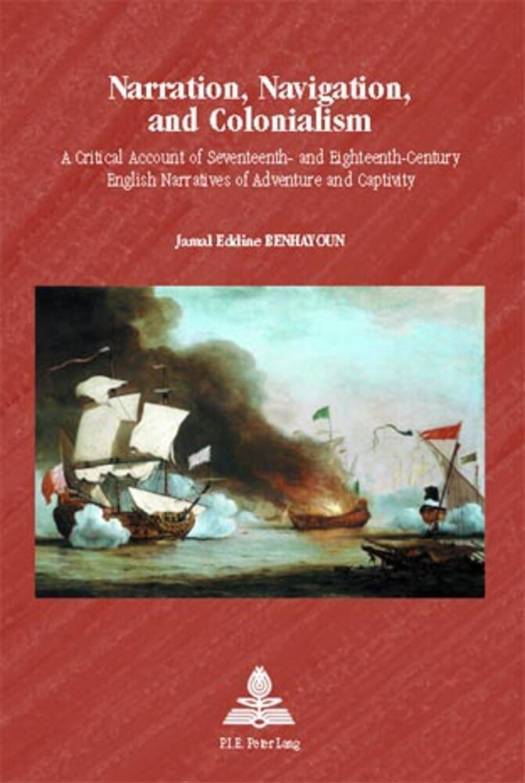
- Afhalen na 1 uur in een winkel met voorraad
- Gratis thuislevering in België vanaf € 30
- Ruim aanbod met 7 miljoen producten
- Afhalen na 1 uur in een winkel met voorraad
- Gratis thuislevering in België vanaf € 30
- Ruim aanbod met 7 miljoen producten
Zoeken
Narration, Navigation, and Colonialism
A Critical Account of Seventeenth- And Eighteenth-Century English Narratives of Adventure and Captivity
Jamal Eddine Benhayoun
€ 109,95
+ 219 punten
Omschrijving
The texts collected in this book are all produced and located within the converging fields of navigation and displacement. The connection between navigation and narration becomes clear when we realise that most of the authors and heroes of the accounts discussed by the author were, in one way or another, involved in shipping and navigation and that their accounts were produced within fluid and floating spaces and in the course of intriguing voyages and long cruises. In all cases, these narratives start with the narrators on board ships and end with them once again taking charge of their ships and sailing back home.
In this book, the author argues that the seventeenth- and eighteenth-century English narratives of adventure and captivity were not produced within clearly demarcated territories and on dry land, but within spaces of indeterminacy, struggle, and transition.
In this book, the author argues that the seventeenth- and eighteenth-century English narratives of adventure and captivity were not produced within clearly demarcated territories and on dry land, but within spaces of indeterminacy, struggle, and transition.
Specificaties
Betrokkenen
- Auteur(s):
- Uitgeverij:
Inhoud
- Aantal bladzijden:
- 228
- Taal:
- Engels
- Reeks:
- Reeksnummer:
- nr. 17
Eigenschappen
- Productcode (EAN):
- 9789052019581
- Verschijningsdatum:
- 19/12/2006
- Uitvoering:
- Paperback
- Formaat:
- Trade paperback (VS)
- Afmetingen:
- 150 mm x 220 mm
- Gewicht:
- 319 g

Alleen bij Standaard Boekhandel
+ 219 punten op je klantenkaart van Standaard Boekhandel
Beoordelingen
We publiceren alleen reviews die voldoen aan de voorwaarden voor reviews. Bekijk onze voorwaarden voor reviews.








